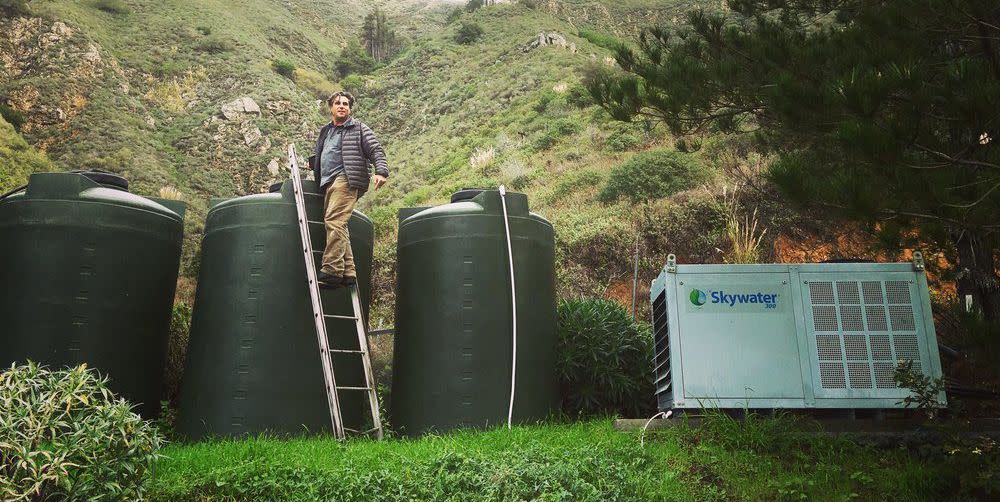This Carbon-Negative Generator Makes Drinkable Water out of Thin Air

A high-volume water generator that can create water out of precipitation, and can be used in any climate, has been awarded a $1.5 million XPrize. The culmination of a two-year water extraction competition, the Skysource/Skywater Alliance was awarded for developing the machine that can produce, at minimum, 2,000 liters of water per day from the atmosphere using 100 percent renewable energy.
Congratulations to @skysourcewater, Grand Prize Winner of the $1.75M Water Abundance XPRIZE powered by @TataCompanies and @dfat_iXc! Their technology successfully extracted over 2,000 liters of water from the air using 100% renewable energy. pic.twitter.com/Miz0yJcV49
- XPRIZE (@xprize) October 21, 2018
Like many innovations, the new machine steals from nature. With the acronym WEDEW (for Wood-to-Energy Deployed Water System), it creates its own clouds within a box the size of a shipping container. Powered by wood chips and similar biomass, the WEDEW draws warm air from outside and sends it through an antimicrobial air filter to remove impurities. Once inside the box, the WEDEW introduces the warm air to generated cold air inside. This produces condensation.
With few running parts, the machine can run for 10-15 years, according to its company website.
There's enough water within the atmosphere at any given time to fill the Great Lakes, around 3,100 cubic miles. Given the fact that this atmospheric water is constantly replenishing due to the planet's hydrologic cycle, the Venice Beach, California-company has created a system that is unlikely at the current moment to effect the atmosphere negatively.
And on top of all that, keeping with the rules of the XPrize competition, it uses electricity efficiently at the cost of two cents per liter.
“It’s a carbon-negative technology,” says David Hertz, a California-based architect who helped lead the project, speaking to FastCompany. “I think the future of technologies is going to be moving to this restorative, regenerative model that actually helps to repair the damage we’ve done.”
Hertz envisions WEDEW systems as shock troops against water crises in the coming years.
"Our process is one that is really antithetical to the slow-moving infrastructure that exists that is not able to be responsive to a changing climate as it is in the case of say, Cape Town, for instance,” he says, referencing the water concerns that have the South African city considering towing down an iceberg.
The global water crisis isn't solved yet. A Skywater Emergency Services Unit can produce 450 to over 900 gallons in a day. That's nothing to sneeze at, but it's worth keeping in mind that the average person uses 100 gallons a day.
But still, the technology is promising. And over a million dollars worth of prize money sounds like just the type of encouragement Skywater needs.
Source: Motherboard
('You Might Also Like',)

